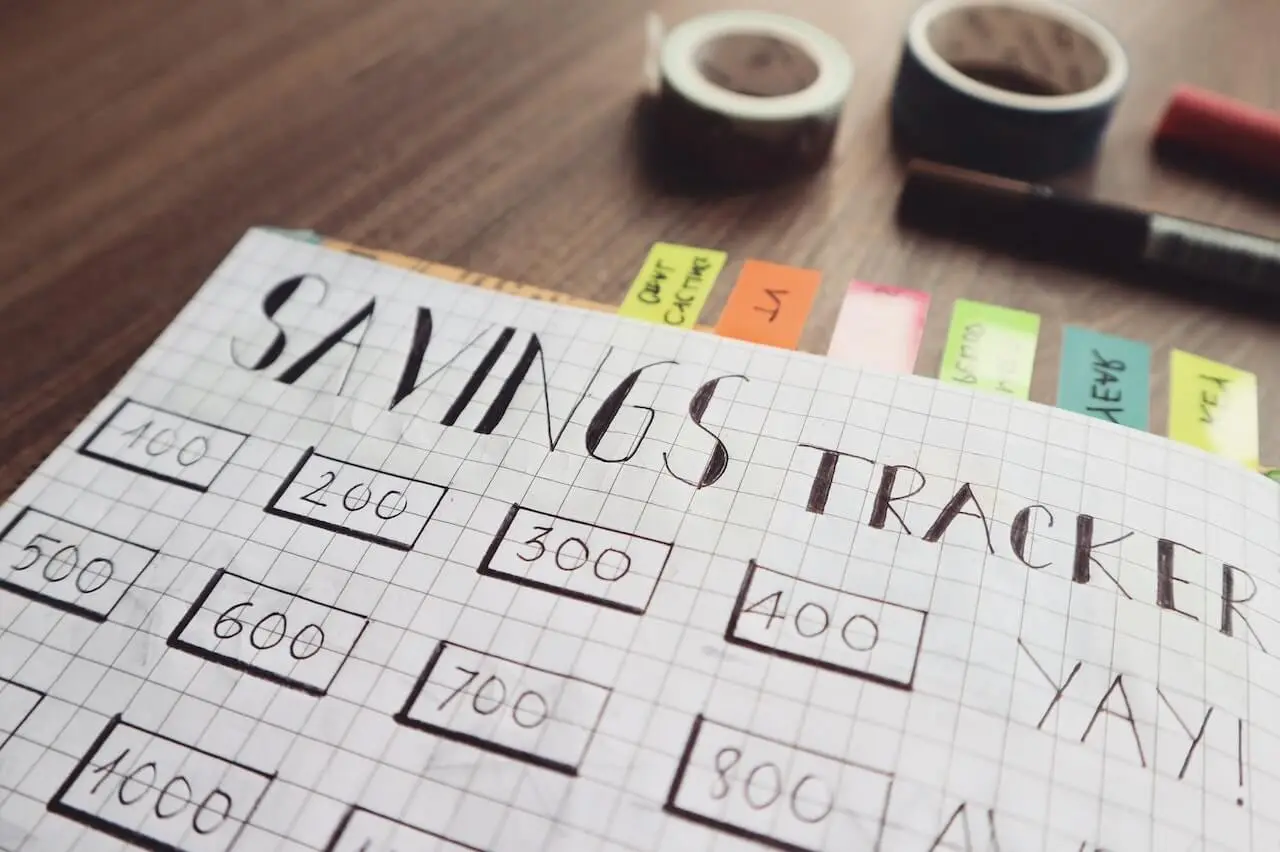To have the best financial health in your life, you always want to improve your finances. There are five small actions you can take to start improving your finances that, over time, will greatly improve your overall financial health:
- Create a budget
- Reducing debt
- Increase savings
- Improve your credit score
- Increasing your income
These five things can provide you with a baseline financial health to focus on other financial goals and aspirations that you have.
5 Things You Can Do to Improve Your Finances
Create a budget.
Creating a budget is one of the best places to start when improving your finances. A budget is a financial tool that can help you allocate your income and expenses. It can help you to make sure you are allocating every dollar and help you stick to a financial plan.
To start budgeting, track your expenses for one to three months. This can help you create a more accurate budget that you can actually stick to.
If you want to get started on a budget before tracking your spending, you can make an educated guess on your spending. Doing this and then going back after you’ve tracked your spending can help you to see how close you were to your actual spending.
This can be a wake-up call that you either spend more or less than you thought.
Be flexible on a budget because things can change. For example, you may have a budget that works for a few months, but it may have to be reevaluated.
A budget can ensure that you set aside money for your savings and other financial goals. Without a budget, you may spend all of your money on unnecessary expenses.
Reduce debt.
Debt can stop you from having the best financial health, because it limits how much money you can put toward other goals. Debt can also mentally weigh on you. Taking steps to reduce your debt can allow you to improve your overall financial situation.
Reducing debt takes a conscious effort and a plan. One of the best ways to reduce debt is by using a method like the debt snowball or debt avalanche method. Once you’ve picked the best method, plan to pay off debt into your budget.
Then, focus on paying off a certain monthly amount along with your regular monthly payments.
As you are paying off debt, avoid taking on new debts. Instead, focus on setting up a small emergency fund, similar to Dave Ramsey’s Baby Step One, to allow you to pay for small emergencies in cash.
Once your debt is paid off, you can focus on using the money you were using for debt toward other goals like buying a car or a home.
Increase savings.
Increasing your savings is another way to improve your financial situation and overall financial health. Savings can be used for a number of things:
- Emergency fund
- Down payment for a home
- Down payment for a car
- Paying for a vacation
- Buying a computer
- Avoiding debt
To increase your savings, focus on setting aside a certain monthly dollar amount towards your savings. Using a budget can help you ensure you save that amount each month. In addition, you can use tools like automatic transfer from your direct deposit to go directly into a high-yield savings account.
By setting up an automatic transfer, you don’t have to mentally remember to set aside a certain amount for savings. Putting your savings into a high-yield savings account can allow you to earn as much interest as possible on your savings while knowing your money is in a safe and easy-to-access account.
If you have a specific goal you are saving for, write a SMART goal to help you stick to your plan.
Improve credit score.
A credit score is a number that is associated with your social security number that tells lenders how trustworthy you are to lend money to.
If you have a high credit score, you’re more likely to be approved for loans and receive a lower interest rate (which means you’ll end up paying less money on the overall loan).
Having a lower credit score makes it more difficult to borrow money if you need to for a home, and you will receive a higher interest rate. Making a plan to improve your credit score will give you more opportunities to borrow money if you need to.
To improve your credit score, focus on the high-impact areas of your credit score, like payment history and your utilization ratio. Set up automatic monthly payments to avoid missing a payment and pay off any cards you can in full. This should help improve your score in a few months.
Continue to check your credit score every week to monitor your progress and how your actions are making a difference in your score.
Increase income.
Another great way to improve your finances is to increase your income.
Again, this may seem like something out of your control, but with online resources, there are ways to do this from:
- Finding a side hustle
- Selling items you no longer use
- Providing a service
- Becoming a content creator
- Asking for a raise
- Finding a new job with a higher salary
Increasing your income will allow you to:
- Increase your savings
- Pay off your debts
- Invest extra money
These things can allow you to improve your financial health by creating more wealth for you and your family.
Final Thoughts
Taking the necessary steps to help improve your finances can allow you to:
- Build wealth
- Work on passion projects
- Spend more time with loved ones
- Pursue unique opportunities
- Travel
Using these five tips, you’ll be able to improve your finances and overall financial health. These five tips can be used individually or together to help you get to your desired financial place.



